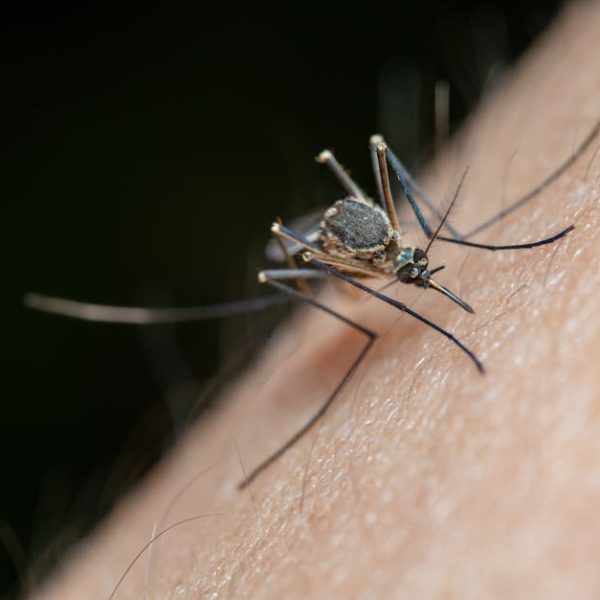As summer approaches and temperatures rise, flies inevitably start making their appearance. If you’re dealing with a house besieged by these bothersome bugs, fear not. Hinted in the title, this article dives into smart solutions for homes infested with flies, presenting a wide range of strategies — from frugal DIY tips and commercial solutions to preventive measures, as well as the role of professional pest control.
Let’s begin by exploring natural ways to reduce the number of flies in your household. While the idea of using herbs or essential oils may sound unorthodox, many of these substances carry a strong odor that flies find repugnant. To leverage this, try diffusing fly-repelling oils like lemongrass, peppermint, or eucalyptus around your home. Another technique is to place plant pots of aromatic herbs such as basil, lavender, or mint near windows or doors where flies commonly enter.
For those inclined to DIY solutions, creating your own fly trap can prove highly effective. This requires little more than everyday household items: a bottle, some sugar, water, and dish soap. The sweetness of the sugar attracts flies, while the dish soap’s stickiness keeps them trapped.
Remember, when using natural repellents, it is essential to ensure they’re safe for your household, including children and pets, and are not causing harm to non-pest insects.
Now, let’s transition into commercial solutions for fly infestations. Several products on the market cater specifically to this issue. Among them, fly sprays and repellent candles can be used as immediate, short-term solutions. Alternatively, if you’re seeking a more high-tech route, try an electronic fly swatter. These devices are designed to attract and quickly eliminate flies with minimal effort.
Each of these commercial solutions has their sets of advantages and drawbacks. For instance, fly sprays are cost-effective and easy to use, but their harsh chemicals can be harmful if not used responsibly. Repellent candles bring a pleasant aroma to your home but must be constantly lit to be effective, posing a potential fire hazard. On the other hand, electronic fly swatters can be priced higher but provide a more environmentally friendly solution.
A pro tip when selecting commercial solutions? Always consider the extent of your infestation and weigh the pros and cons to decide which solution best fits your needs. Stay tuned for the second part of the article to find out more about the role of regular maintenance and professional pest control in keeping your home fly-free! Part 2
The battle against fly invasions doesn’t end with eradicating the current pests, though. A consistently clean and well-maintained household proves instrumental in ensuring flies don’t make your home their breeding ground. Sanitation plays one of the most crucial roles in repelling flies—ensuring that food sources and potential laying grounds for flies are minimal. Remember, flies are attracted to decaying organic matter and garbage, so it’s essential to dispose of waste properly, clean up after meals, and store food adequately.
A checklist of essential cleaning practices to create a fly-unfriendly environment can include:
- Regular cleaning of trash cans
- Secure sealing of all food containers
- Regular cleaning of kitchen surfaces
- Regular vacuuming and mopping of floors
- Regular removal and disposal of pet waste.
Incorporate these simple practices into your routine, and you’ll create an environment where flies are less likely to thrive.
Despite our best efforts, sometimes, the infestation can get out of hand and aligning with a professional pest control service becomes necessary. Professionals have access to specialized equipment and stronger tools to tackle severe infestations. Moreover, they’re trained to locate fly breeding grounds and eliminate them at the source.
When choosing a pest control company, research their reputation, efficacy, and safety protocols. A reliable company will not only effectively rid your home of flies but also provide you tricks to prevent future infestations. This is generally a more expensive option than DIY tactics, but it provides quicker and more reliable results.
Now, think of long-term preventive strategies for a fly-free home. Installing fly screens on windows and doors can prove useful to keep flies out. Regular checks for potential breeding grounds, such as standing water in your property, and maintaining a well-manicured landscape can also deter flies.
Here are a few long-term practices:
- Installation of fly screens on windows and doors
- Regular checks and maintenance of gutters and drains
- Ensuring garbage bins are sealed tightly
- Regular trimming of plants and removal of fallen fruits.
The key to successful long-term strategies is vigilance, so make sure to regularly inspect and maintain areas of your house where flies could potentially breed. With all these practices in hand, you can set up a strong defense line against any unwelcome fly invasions.
Whether you opt for natural methods or commercial solutions, regular home maintenance, or professional pest control, the choice ultimately depends on the severity of your infestation, the resources you have at your disposal, and your personal preference. The fight against flies may seem a continuous battle, but with careful planning and consistent effort, it’s definitely one you can win!
Key Takeaway:
- Natural methods like using herbs and essential oils or creating DIY fly traps can be a safe and effective way to handle a fly infestation.
- Commercial solutions like fly sprays, repellent candles, and electronic swatters are available and have varying pros and cons.
- Regular home maintenance, such as proper sanitation and food storage, can help prevent flies from breeding.
- Professional pest control services can be a good option when the infestation is severe, as they use specialized equipment and methods.
- Long-term strategies such as installing fly screens and maintaining a clean landscape can significantly reduce the chances of a fly infestation.
With all these strategies, you can reclaim your home from these pesky invaders. Remember to consider the extent of your infestation and personal preference before deciding on a particular approach. Above all, the key is to be proactive, consistent, and vigilant in your efforts to prevent and treat fly infestations.
FAQs
Q: Can I use any essential oil to repel flies?
A: Not all essential oils work as fly repellents. Oils like lemongrass, peppermint, and eucalyptus are effective. Always do your research or consult with a professional before using an oil.
Q: Do electronic fly swatters work on all types of flies?
A: Most electronic fly swatters are effective against common houseflies, but their effectiveness can vary with other fly species. It’s advisable to check the product specifications.
Q: Are professional pest control services safe for households with pets and kids?
A: Most professional pest control companies follow safety protocols for houses with pets and children. However, it’s always best to discuss this with the company before proceeding.
Q: Can I use commercial and natural solutions simultaneously to manage a fly infestation?
A: Yes, you can combine different strategies to suit your needs. Although, it’s recommended to monitor the results, as it can help identify which approach works best for your situation.
Q: How frequently should I carry out maintenance practices to prevent fly infestations?
A: Regular cleaning and maintenance prove instrumental in keeping your home fly-free. Daily practices can include proper food storage and waste disposal. Certain tasks like checking potential breeding grounds and trimming plants can be done weekly or monthly.
Feel free to share this useful article and explore more posts on our website to keep your home clean and pest-free efficiently!






